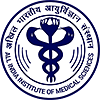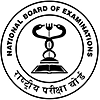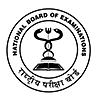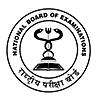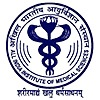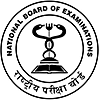MS Neurosurgery: Course Details, Eligibility, Admission, Fees

MS Neurosurgery is a two year postgraduate program that aims to provide comprehensive knowledge on Neurology and Neurosurgery and helps students get expertise by including various subjects like Neuroanatomy, Neurophysiology, Neuropathology. MS Neurosurgery jobs after graduation include Neurosurgeon, Neurobiologist, Biotechnologist, Neurologist, Biochemist, Community Mental Health Worker, etc.
Table of Contents
- About MS Neurosurgery
- Eligibility Criteria for MS Neurosurgery
- Who Should Pursue an MS Neurosurgery Course?
- How To Get Admission for MS Neurosurgery?
- Popular Entrance Exams for MS Neurosurgery
- Top 10 MS Neurosurgery Colleges in India
- Fee Structure for MS Neurosurgery
- Syllabus and Subjects for MS Neurosurgery
- Why Choose MS Neurosurgery Course?
- MS Neurosurgery Course Comparison
- Preparation Tips for MS Neurosurgery Course
- Scope of MS Neurosurgery For Higher Education
- Salary of a MS Neurosurgery Graduate
- Career Options After MS Neurosurgery Graduation
- Skills That Make You The Best MS Neurosurgery Graduate
MS Neurosurgery Course Details
| Degree | Masters |
| Full Form | Master of Surgery in Neurosurgery |
| Duration | 2 Years |
| Age | No Age Restrictions |
| Entrance Exam | NEET PG, INI CET |
| Minimum Percentage | M.B.B.S. with a minimum 50% aggregate from MCI-recognized Institute |
| Average Fees | ₹30K - 5 LPA |
| Average Salary | INR 3 to 12 LPA |
| Employment Roles | Neurosurgeon, Neurobiologist, Biotechnologist, Neurologist, Biochemist, Community Mental Health Worker, etc. |
| Top Recruiters | Fortis Healthcare, Apollo Hospitals, Orion Healthcare Solution |
About MS Neurosurgery
MS Neurosurgery is a two-year post-graduation course that gives advanced knowledge in the diagnosis and treatment of brain and spinal cord disorders and injuries. The MS Neurosurgery syllabus covers all the relevant topics in the field of Neurology and Neurosurgery. MS Neurosurgery job scope is broad for providing excellent career opportunities to students in the public and private sectors.
Eligibility Criteria for MS Neurosurgery
For MS Neurosurgery course admission, students must be aware of the MS Neurosurgery eligibility requirements as well as the MS Neurosurgery course details. The typical MS Neurosurgery eligibility requirements for the most well-known colleges are given below.
- Candidates must have finished their bachelor's degree in studying MBBS or any other relevant programme from an MCI-certified university.
- Applicants must earn a minimum of 50 percent on their bachelor's degree.
- Some of the best MS Neurosurgery colleges in India require candidates to complete at least a 12-month internship in the same profession.
Who Should Pursue an MS Neurosurgery Course?
The MS Neurosurgery programme is designed for students who desire to pursue a career in the fields of various areas of medical science related to Neurology and Neurosurgery. MBBS Students who want to gain expertise in the fields such as Neuroanatomy, Neurophysiology, Neuropathology, etc can pursue this course to gain relevant knowledge in the field resulting in Neurology based career prospects.
When To Do MS Neurosurgery Course?
An applicant who has completed their MBBS degree can apply for the course. Candidates who have qualified for the NEET PG exams and seeking for master's degree in the Neurosurgery area can apply for the same.
How To Get Admission for MS Neurosurgery?
MS Neurosurgery admission is available via both an entrance examination and a merit-based selection process. Applicants seeking the MS Neurosurgery degree should get qualifying cut-off marks from the entrance test needed by the universities they have chosen. Though the admission procedure differs for each college, The typical admission criteria and processes are discussed thoroughly below.
How to Apply?
Applications for the MS Neurosurgery degree programme are accessible online through the University website or in person at the Admissions Office. Applicants seeking the MS Neurosurgery admission should bring all required documents, such as undergraduate degree results and ID verification for document verification process.
Selection Process
The selection procedure for MS Neurosurgery in India is typically the same regardless of specialization. In general, once an application for the program is received, colleges make their final selection of applicants for MS Neurosurgery on their performance in the entrance tests and merit earned by the applicants in their undergraduate degrees. However, some colleges can conduct interview sessions and other aptitude rounds for final selection.
Popular Entrance Exams for MS Neurosurgery
Students have to appear for various state and national-level entrance exams for MS Neurosurgery admission. However, some colleges can conduct their own entrance exams for admission. The popular entrance exams for MS Neurosurgery are listed below.
| MS Neurosurgery Entrance Exams | Registration Details |
| NEET PG | NEET PG Application Form |
| INI CET | INI CET Application Form |
A Quick Glance at the MS Neurosurgery Entrance Exams
Students can get information about MS Neurosurgery courses by going to the official website of the college to where they want to get admitted. The entrance test is used for admissions to evaluate a candidate's merit. Some general rules for the MS Neurosurgery entrance exams are listed below:
- English, logical reasoning, analytical thinking, and subject & specialization-specific questions are included in the exam format.
- Students are required to gain knowledge of the curriculum of entrance exams thoroughly.
- The papers are based on MCQs and objective-type questions.
- The mode of language used in exams in English
- Students can practice and revise the previous year's question papers to be well-prepared for the exam.
Top 10 MS Neurosurgery Colleges in India
There are various renowned colleges in India that provide top-notch MS Neurosurgery programs. MS Neurosurgery in AIIMS is known for proving an excellent course structure. Below is the list of the Top MS Neurosurgery Colleges in India.
|
Sl.No |
Name of the College |
Average Fees |
|
1 |
INR 2,000 PA |
|
|
2 |
INR 45,000 PA |
|
|
3 |
INR 8,000 PA |
|
|
4 |
INR 70,000 PA |
|
|
5 |
Sree Chitra Tirunal Institute of Medical Sciences and Technology |
INR 70,000 PA |
|
6 |
INR 42,000 PA |
|
|
7 |
INR 2 LPA |
|
|
8 |
INR 3 LPA |
|
|
9 |
INR 6,000 PA |
|
|
10 |
Nizam's Institute of Medical Sciences, Hyderabad |
INR 92,000 PA |
Top MS Neurosurgery Government Colleges
There are a number of well-known government colleges throughout the nation that provides quality MS Neurosurgery programmes. The following table provides a listing of the top MS Neurosurgery government colleges in India:
|
Sl.No |
Institution |
|
1 |
|
|
2 |
|
|
3 |
|
|
4 |
|
|
5 |
Top MS Neurosurgery Private Colleges
Several private MS Neurosurgery colleges in India offer among the country's most prestigious programmes. Check the chart below for the leading private MS Neurosurgery colleges in India:
|
Sl.No |
Institution |
|
1 |
Sri Ramachandra Institute of Higher Education and Research, Chennai |
|
2 |
|
|
3 |
|
|
4 |
Nizam's Institute of Medical Sciences, Hyderabad |
Fee Structure for MS Neurosurgery
The MS Neurosurgery fees are variable and conditional on different aspects. The MS Neurosurgery fees are affected by various factors which include location, faculty, industry, infrastructure, and the amenities accessible to the students. The average MS Neurosurgery fee in India is between INR 2,000 PA and 6 LPA.
|
Sl.No. |
Name of the College |
Total Fee Structure |
|
1 |
AIIMS Delhi |
INR 2,000 PA |
|
2 |
Sanjay Gandhi Post Graduate Institute of Medical Sciences, Lucknow |
INR 45,000 PA |
|
3 |
PGIMR, Punjab |
INR 8,000 PA |
|
4 |
National Institute of Mental Health and Neuro Sciences, Bangalore |
INR 70,000 PA |
|
5 |
Sree Chitra Thirunal Institute of Medical Sciences and Technology, Kerala |
INR 70,000 PA |
Syllabus and Subjects for MS Neurosurgery
MS Neurosurgery is a two-year course that comprises four semesters. The course framework includes core and elective subjects through theoretical knowledge and practical training. The following are some of the popular subjects that students have the opportunity to study in the MS Neurosurgery course:
- Neuroanatomy
- Neuropharmacology
- Spinal Surgery
- Cerebrovascular Surgery
- Neuroradiology
- Neurotrauma and Neurosurgical Critical Care
- Stereotactic and Functional Neurosurgery
Read More: MS Neurosurgery Syllabus and Subjects
Why Choose MS Neurosurgery Course?
When students decide to pursue the MS Neurosurgery qualification, they should research MS Neurosurgery course details to ensure that they know the course they are enrolled in. Some of the common queries that students encounter are, "What is MS Neurosurgery" and "Why MS Neurosurgery?". To understand the answer to these questions, we can make it simpler by breaking it down into the following three short questions:
What is MS Neurosurgery All About?
MS Neurosurgery, or Master of Surgery in Neurosurgery, is a two-year postgraduate program that teaches students to diagnose and treat brain and spinal cord disorders. MS Neurosurgery Syllabus covers the study of various Neurology principles and subjects, including Neuroanatomy, Neurophysiology, and Neuropathology, among others. After completing the course, applicants will have access to different profitable career prospects.
What Does an MS Neurosurgery Graduate Do?
Neurosurgery is a challenging and highly sought-after specialization in Medicine and Surgery that requires substantial expertise. The chance to conduct some of the most difficult surgical procedures frequently attracts some of the brightest medical students to pursue an MS in Neurosurgery, which is considered the greatest medical degree in this discipline.
- Neurosurgeon: Their job is to detect and treat central nervous system illnesses and diseases. They evaluate the patient's spinal cord or brain for damage or illnesses and administer treatment accordingly.
- Neurologist: Neurologists can be employed by hospitals, health centers, or academic institutions, where they can treat patients, do research, or teach students. They are experts at figuring out what is wrong with the brain and nervous system and how to treat it.
Reasons Why MS Neurosurgery Can Fetch You a Rewarding Career?
MS Neurosurgery is affiliated with medical specialists who can operate on the nervous system, spine, and brain damage difficulties. Students are provided with thorough practical knowledge and training for the industry. The following are reasons to pursue an MS Neurosurgery:
- Relationship with the patient: When a neurosurgeon helps a patient fight a battle, they form a strong bond with that person. They have a special bond because the neurosurgeon gives the patient safety, contentment, and support as they fight their battle.
- Work Ethic: A neurosurgeon gives their full attention to the case they are given and does their best to find a way to fix the problem. They sometimes work around the clock in hospitals to help patients feel better and have someone to talk to.
Read More: MS Neurosurgery Jobs & Scope
MS Neurosurgery Course Comparison
MS Neurosurgery is an abbreviation for Master of Surgery in Neurosurgery and is primarily oriented toward students interested in Neuroscience and healthcare. Below is a comparison of the MS Neurosurgery course with other courses:
MS Neurosurgery vs MCh Neurosurgery
The table below showcases the differences between MS Neurosurgery and MCh Neurosurgery:
|
Course |
MS Neurosurgery |
MCh Neurosurgery |
|
Full Form |
Master of Surgery in Neurosurgery |
Master of Chirurgiae in Neuro Surgery |
|
Stream |
Science, Biology, Neuroscience |
Science, Biology, Neuroscience |
|
Course Duration |
2 years |
5 years |
|
Eligibility |
MBBS with 50% marks from MCI recognized Institute |
MBBS from an institute recognized by MCI with 50% aggregate |
|
Entrance Exams |
NEET PG, INI CET |
DUET, AIIMS Entrance Exam, AEEE, JIPMER |
|
Top Colleges |
AIIMS, SGPGIMS, JIPMER |
AIIMS, MAMC, JIPMER |
|
Fees |
INR 30,000 to 5 LPA |
INR 45,000 - 36 LPA |
Read More: MCh Neurosurgery
Preparation Tips for MS Neurosurgery Course
A few things should be considered when pursuing an MS Neurosurgery course. Students will be able to complete the course and exams without any difficulty if they follow the preparation guidance given below:
- Advance preparation: Allow a month for thorough planning. Before you begin working, prepare a list of what you need to study and practice.
- Setting up the schedule: Complete your preparations well in advance to provide time for content revisions.
- Consult a Syllabus Advisor and alumni: Evaluate your understanding of the syllabus, and consult with seniors, alumnis or advisers for guidance if necessary.
Scope of MS Neurosurgery For Higher Education
Upon completing the MS Neurosurgery course, the candidate can continue their studies with Neuro-science courses. The program aims to educate medical professionals who can contribute substantially to the field.
After graduation, the following higher education choices are available:
- MCh Neurosurgery
- MD-PhD (combined)
Salary of a MS Neurosurgery Graduate
According to Glassdoor, the average MS Neurosurgery salary in India for freshers is INR 3 - 12 LPA. Salary and annual earnings are influenced by the type of practice, performance, expertise, and other relevant factors. Internships and work placements can help graduates increase their salaries by enhancing their experience.
Read More: MS Neurosurgery Salary
Career Options After MS Neurosurgery Graduation
An MS Neurosurgery program graduate has numerous career opportunities. The MS Neurosurgery program graduates typically work in both public and private organizations. They are sought after in a wide range of industries, including:
- Hospitals Medical Institutes
- Universities & Colleges
- Private Clinics
- Health Ministry
- Training Centers
- Laboratories
Skills That Make You The Best MS Neurosurgery Graduate
A candidate for MS Neurosurgery must have the necessary skills to advance in the program. The course is practical, and prerequisite knowledge is essential. Here is a list of some of the skills that an applicant should acquire:
- Medical writing skills
- Counseling and caring skills
- Knowledge Of The Nervous System, Brain, and Spinal Cord
- Demonstrate Skill In Surgical Practice
- Patience and Perseverance
- Researching
